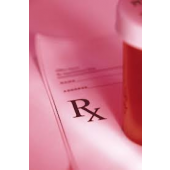Top 75 Pharmacy Schools in the U.S.

 6. University of Michigan College of Pharmacy, Ann Arbor, Michigan
6. University of Michigan College of Pharmacy, Ann Arbor, Michigan
The University of Michigan was established in 1817, making it one of the oldest universities in the region and the first public university in the Northwest Territories. The school, which consists of three campuses, is home to more than 59,000 students. The main campus—Ann Arbor, sits on roughly 31,000 acres, while the Flint campus sits on 76 acres in the heart of downtown, Flint, Michigan. The Dearborn campus sits on the 196-acre Henry Ford Estate—a gift of the Ford Motor Company.
The University of Michigan offers more than 250 areas of study, across 19 schools and colleges. This includes one of America’s top-ranked pharmacy schools—the University of Michigan College of Pharmacy. Established in 1876, the College of Pharmacy was the first school of pharmacy in a U.S. state university. The College is home to approximately 300 Pharm.D. students, and 70 graduate students.
The College of Pharmacy offers a Pharm.D. degree, a Ph.D. in Medicinal Chemistry with Biochemical, Biophysics, Bioinformatics, and Organic tracks; Ph.D. degrees in Pharmaceutical Sciences and Social and Administrative Sciences; a Master of Engineering - Pharmaceutical Engineering, and a Joint Pharm.D. and Ph.D. in Pharmaceutical Sciences.
Tuition for the 2010-2011 academic year is $20,212 for Michigan residents and $36,134 for nonresidents.
 7. University of Texas at Austin, College of Pharmacy, Austin, Texas
7. University of Texas at Austin, College of Pharmacy, Austin, Texas
According to the Times Higher Education World University Rankings for 2012-2013, the University of Texas at Austin (UT Austin) is a Top 25 School. Established in 1883,UT Austin is the largest school in the University of Texas system and one of the largest public universities in the U.S. The school is home to more than 50,000 students and it offers more than 170 undergraduate programs, 150 Master’s programs, and 80+ Doctoral programs across 18 colleges and schools.
The University of Texas at Austin, College of Pharmacy dates back to 1893 when it was home to just three students and 11 professors. Back then, the University operated out of the ground level of the Old Red Main Building at the University of Texas Medical Branch at Galveston. Today, the College operates out of a two-building pharmacy complex at the University of Texas at Austin, and it ranks among the Top Ten Pharmacy Schools by U.S. News & World Report, out of 100 pharmacy programs across the U.S.
Home to around 127 students, the UT Austin College of Pharmacy offers a Pharm.D., a M.S. and a Ph.D. in Pharmaceutical Sciences with a specialization in Pharmacology and Toxicology, Medicinal Chemistry, Pharmaceutics, Pharmacotherapy, Health Outcomes and Pharmacy Practice, and Interdisciplinary Studies; and a new interdisciplinary Ph.D. Degree in Translational Sciences.
The average tuition rates for Pharm.D. students are $7,915/semester (in-state) and $20,460/semester (out-of-state/international). Rates are based on a flat rate tuition plan.
 8. University of Maryland School of Pharmacy, Baltimore, Maryland
8. University of Maryland School of Pharmacy, Baltimore, Maryland
The University of Maryland dates back to 1856, when it was chartered as Maryland Agricultural College. The University sits on 1,200 acres and it is home to 37,248 graduate and undergraduate students. Ranked among the Top 20 Public Universities in the country by U.S. News & World Report and Forbes, the University of Maryland offers more than 90 academic programs across more than a dozen colleges and schools.
The University of Maryland School of Pharmacy was established in 1841, making it the fourth oldest school of pharmacy in the U.S. The school has two campuses—Baltimore, and Shady Grove in Rockville, MD, and it is home to nearly 700 students. The School offers a variety of pharmacy programs including a Pharm.D., a Ph.D. in Pharmaceutical Health Services Research and a Ph.D. in Pharmaceutical Sciences, M.S. degrees in Pharmaceutical Sciences (Pharmacometrics) and Regulatory Science.
The School of Pharmacy also offers an impressive number of dual degree programs.
Dual degree programs include Pharm.D./JD (University of Maryland School of Law), Pharm.D./MBA (UB/Towson MBA Program), and a Pharm.D./MPH (University of Maryland School of Medicine).
Tuition costs for the University of Maryland School of Pharmacy are $572 per credit hour ($3,432/six credits) for residents, and $1,030 per credit hour ($6,180/six credits) for non-residents.
 9. University of Kentucky College of Pharmacy, Lexington, Kentucky
9. University of Kentucky College of Pharmacy, Lexington, Kentucky
The University of Kentucky was established in 1865 as the Agricultural and Mechanical College of the Kentucky University. The school, which sits on a 779-acre campus, is home to 28,094 students. The University of Kentucky offers more than 250 programs across 18 colleges and schools.
Established in 1870 as the Louisville College of Pharmacy, the University of Kentucky College of Pharmacy ranks among the Top Ten pharmacy schools in the nation by U.S. News & World Report. It’s students have been number one in the nation in first-time pass rates on the national licensing exam for the past ten years and College of Pharmacy research faculty rank fourth out of 354 institutions in scholarly activity.
The College of Pharmacy offers a Pharm.D. degree and a Ph.D. in Pharmaceutical Sciences with three tracks including Traditional Pharmaceutical Science, Clinical and Experimental Therapeutics, and Pharmaceutical Outcomes & Policy. Tuition rates for the College of Pharmacy are $12,836 per semester (full-time) for Kentucky residents and $23,307 per semester (full-time) for non-residents. Tuition rates are for the 2013-2014 school year.
 10. University of Utah College of Pharmacy, Salt Lake City, Utah
10. University of Utah College of Pharmacy, Salt Lake City, Utah
The University of Utah was founded in 1850, making it the state's oldest institution of higher education. The school, which sits on a 1,535-acre campus, is home to more than 32,000 students, which also makes it the largest post-secondary institution in the state. The University of Utah is home to more than a dozen colleges and schools offering more than 100 undergraduate programs and over 90 graduate degree programs.
Established in 1946, the University of Utah College of Pharmacy is part of the University of Utah Health Sciences Center. It ranks among the Top Ten Colleges of Pharmacy by U.S. News & World Report (2013), and the National Institutes of Health (NIH) lists the school in the Top Ten for research productivity.
The College of Pharmacy offers a Pharm.D., as well as Ph.D. degrees in Medicinal Chemistry, Pharmaceutics & Pharmaceutical Chemistry, Pharmacology & Toxicology. The College also offers the opportunity to pursue a Pharm.D. and Ph.D. simultaneously in the areas of Medicinal Chemistry, Pharmaceutics & Pharmaceutical Chemistry, Pharmacology & Toxicology, and Pharmacotherapy.
Tuition for the University of Utah College of Pharmacy is $11,046.19 for 12 credit hours (per semester) for residents and $19,325.92 for 12 credit hours (per semester) for non- residents.
 11. University of Wisconsin-Madison, School of Pharmacy, Madison, Wisconsin
11. University of Wisconsin-Madison, School of Pharmacy, Madison, Wisconsin
The University of Wisconsin-Madison was established in 1848. The school, which sits on 936 acres, is home to more than 42,000 students enrolled in 157 undergraduate majors, 150 Master's programs, and 108 Doctoral programs. The school, which ranks in the Top 20 among world universities in the annual Academic Ranking of World Universities (ARWU) by Shanghai’s Jiao Tong University, houses 20 colleges and schools.
The University of Wisconsin-Madison, School of Pharmacy was established in 1883 and it is the first school of pharmacy to offer a baccalaureate degree in pharmacy. The School was also the first in the nation to award doctoral degrees in pharmaceutical chemistry, pharmaceutics, the history of pharmacy, social studies of pharmacy, and continuing education.
The School offers a B.S. in Toxicology, a Pharm.D., a Ph.D. in Pharmaceutical Sciences, a M.S. in Health System Pharmacy Administration, a M.S. and a Ph.D. in Social & Administrative Sciences in Pharmacy, and a Pharm.D. & MPH dual degree. Other offerings include Certificates in Consumer Health Advocacy, Global Health, Fundamentals of Clinical Research, Type 2 Translational Research, and Patient Safety.
Tuition rates for the University of Wisconsin-Madison, School of Pharmacy are $8,143 per semester for Wisconsin Residents, $12,457 per semester for Minnesota Residents, and $14,372 per semester for non-residents and international residents. Tuition rates include the projected $565 per-semester segregated fees.
 12. University of Florida College of Pharmacy, Gainesville, Florida
12. University of Florida College of Pharmacy, Gainesville, Florida
The University of Florida (UF) opened its doors in Gainesville in 1906 with just 102 students. Today, the school is home to nearly 50,000 students and 4,000 faculty members, and it consistently ranks among the nation’s top universities. The University of Florida was listed among the Top 20 Public Universities by U.S. News & World Report (2012), and by Forbes in 2013. The School, which sits on a 2,000-acre campus, houses 15+ colleges and schools offering more than 125 academic programs.
Established in 1923, the University of Florida College of Pharmacy is the oldest college in the UF Health Science Center. The College, which ranks among the top colleges and schools of pharmacy in the nation, is home to 1,171 Pharm.D. and 552 M.S./Ph.D. students and it has four campus locations including Gainesville, Jacksonville, Orlando, and St. Petersburg.
Program offerings include the Pharm.D., and five areas of Graduate concentration areas including Medicinal Chemistry, Pharmaceutics, Pharmacodynamics, Pharmaceutical Outcomes and Policy, and Pharmacotherapy & Translational Research. The College of Pharmacy offers a number of joint degree and online programs as well. Joint degree programs include a B.S. in Nutritional Sciences/Pharm.D., Pharm.D./JD, Pharm.D./MBA, Pharm.D./MPH, and the Pharm.D./Ph.D.
Online M.S. programs include Forensic Science, Pharmaceutical Chemistry, Clinical Toxicology, Pharmacy Regulation - Pharmaceutical Outcomes & Policy, Medication Therapy Management, and Clinical Pharmacy for International Pharmacists. The University of Florida College of Pharmacy is one of only a few schools to offer a large collection of online pharmacy programs.
Resident tuition for the University of Florida College of Pharmacy (Year 1) is $26,687.95. The cost for Year 2 is $25,045.94, for Year 3 the cost it $23,692.30, and tuition for Year 4 is $22,833.70. Non-resident tuition is $49,826.41 for Year 1, $48,189.39 for Year 2, $46,835.86 for Year 3, and $46,052.03 for Year 4.
 13. University of North Carolina Eshelman School of Pharmacy, Chapel Hill, North Carolina
13. University of North Carolina Eshelman School of Pharmacy, Chapel Hill, North Carolina
The University of North Carolina was established in 1789. The school, which was the first public university in the U.S., consists of 17 institutions, including the NC School of Science and Mathematics—the country’s first public residential high school for gifted students. The University of North Carolina is home to 28,000 students, enrolled in 76 Bachelor's, 108 Master's, 74 Doctorate, and four Professional degree programs.
Founded in 1897, the Eshelman School of Pharmacy offers a Pharm.D., a M.S. in Pharmaceutical Sciences with a specialization in health-system pharmacy administration and four Ph.D. programs. Ph.D. offerings include Chemical Biology and Medicinal Chemistry; Molecular Pharmaceutics; Pharmacotherapy and Experimental Therapeutics; and Pharmaceutical Outcomes and Policy.
The Eshelman School of Pharmacy is only public school of pharmacy in North Carolina and one of the oldest in the nation. It ranks among the top 20 doctor of pharmacy programs in the nation by U.S. News & World Report magazine’s 2013 edition of America’s Best Graduate Schools and it enrolls around 850 students annually. Tuition for North Carolina residents is $9,731.28 per semester (Fall/Spring) and $1,640 (Summer). Tuition for non-residents is $20,963.28 per semester (Fall/Spring) and $4,008 (Summer).
 14. University of Pittsburgh School of Pharmacy, Pittsburgh, Pennsylvania
14. University of Pittsburgh School of Pharmacy, Pittsburgh, Pennsylvania
The University of Pittsburgh was founded in 1787, making it one of the oldest universities in the U.S. The school, which sits in a 132-acre campus, is home to
24,990 undergraduates and 10,340 graduate students. Rated one of the nation's best institutions for undergraduate education in Princeton Review’s 2014 edition of “The Best 378 Colleges,” the University of Pittsburgh offers 100+ undergraduate programs and more than 200 graduate degree programs.
The University of Pittsburgh School of Pharmacy was chartered in 1878, making it the oldest school of the University of Pittsburgh's Schools of the Health Sciences. The School of Pharmacy enrolls 100+ students and year and offers the Pharm.D., a Ph.D. and M.S. Thesis program with four tracks, and a one-year M.S. in Pharmaceutical Sciences. Tracks for both the M.S. and Ph.D. programs include Biochemical Pharmacology, Clinical Pharmaceutical Scientist, Medicinal Chemistry, and Pharmaceutics.
Tuition rates for academic year 2013-2014 are $27,798 for residents and $30,870 per year for non-residents. Tuition costs for the Graduate program in Pharmaceutical Sciences (M.S. or Ph.D.) is $23,408 per year for residents and $24,110 for non-residents. The School of Arts and Sciences Pre-pharmacy program costs $16,241 for residents and $26,246 for non-residents.
 15. University of Georgia College of Pharmacy, Athens, Georgia
15. University of Georgia College of Pharmacy, Athens, Georgia
Established in 1785, the University of Georgia is the country’s first state-chartered university. Home to 34,475 students, the school offers nearly 400 fields and areas of study. The main campus sits on 759 acres, with nearly 40,000 acres across 30 Georgia counties. Ranked in the top 50 among public universities by U.S. News & World Report and in the top 20 by Kiplinger Magazine among “100 Best Values in Public Colleges,” the University of Georgia is also home to one of the nation’s oldest schools of pharmacy.
The University of Georgia College of Pharmacy dates back to 1903. Five years later, the first graduating class of three students received a Pharmacy Graduate (Ph.G.) degree. Today, the College admits around 145 students a year and it offers the Pharm.D., Graduate programs in Clinical and Administrative Pharmacy, Pharmaceutical and Biomedical Sciences, and Regulatory Affairs & Clinical Trials.
The College of Pharmacy will welcome its very first group of B.S. students in Fall 2013.
Upon completion of the program, students will receive a Bachelors of Science (B.S.) in Pharmaceutical Sciences.
Georgia resident tuition and fees are $8,449 per semester and $18,449 per semester for non-residents.
Pages

- Facebook Like
- Google Plus One
- 747356 reads


